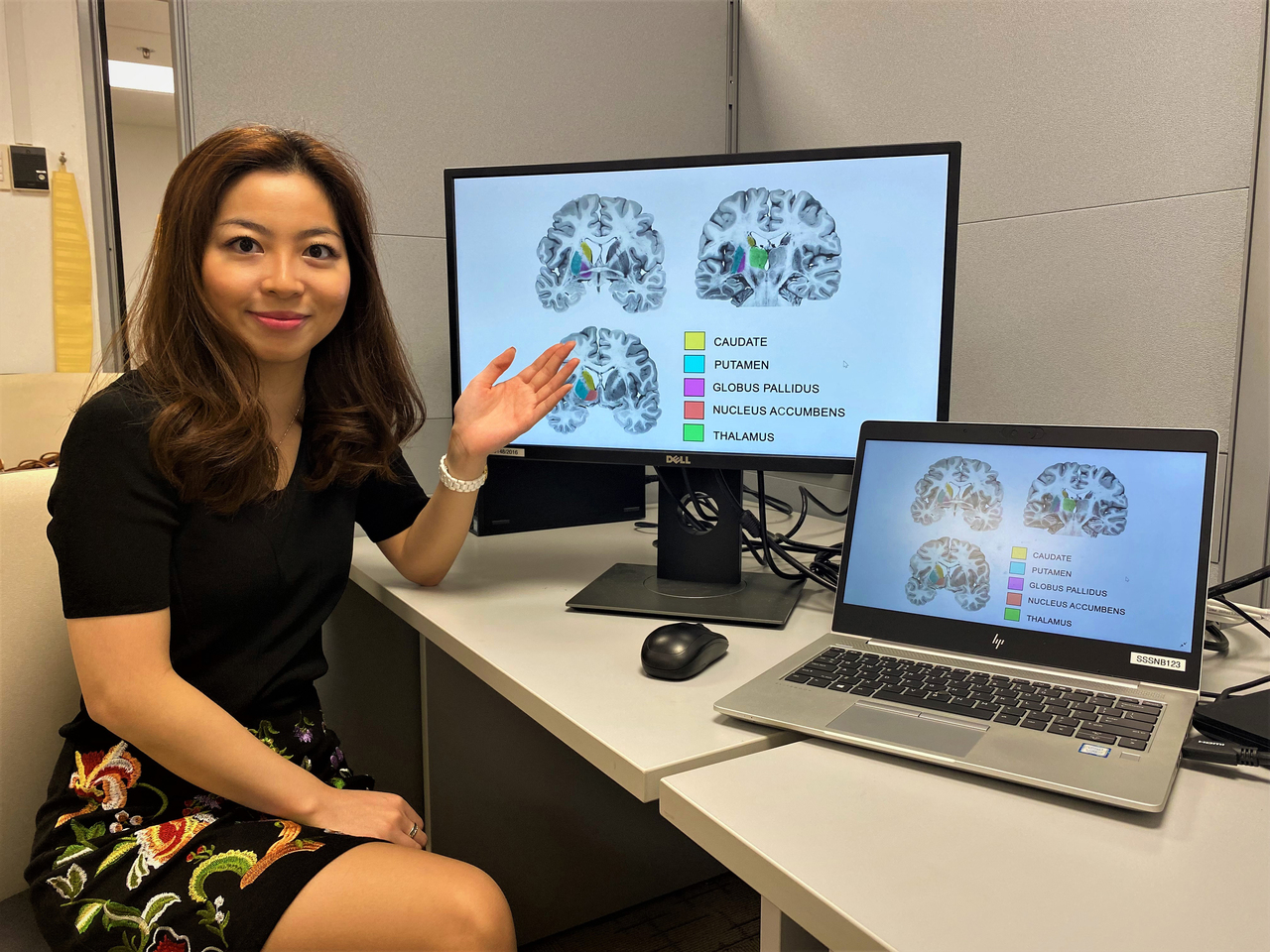Biological differences in the brain found in psychopaths: Study
Sign up now: Get ST's newsletters delivered to your inbox

Assistant Professor Olivia Choy from NTU's School of Social Sciences co-authored the study.
PHOTO: NTU
SINGAPORE - People with larger striatum are more likely to exhibit impulsive and sometimes psychopathic behaviour, which include anti-social and egocentric traits, a study has found.
Researchers noted that the striatum, a region of the forebrain, was on average 9 per cent larger in psychopathic individuals compared to a control group who had low or no psychopathic traits.
The striatum coordinates multiple aspects of cognition such as decision making, and the forebrain controls the display of emotions, motor function and is the centre of language, intelligence and thinking.
The team comprised neuroscientists from Nanyang Technological University (NTU), the University of Pennsylvania and California State University.
Their study has established a biological link, where a larger striatum has been associated to a larger appetite for stimulation and impulsive behaviours.
Previously, studies have linked an overly active striatum to psychopathic behaviour but did not conclusively establish the relationship between the striatum's size and a person's behaviour.
The striatum typically becomes smaller as a child matures, suggesting that psychopathy could be related to differences in how the brain develops or some developmental abnormality.
In general, about one in 100 people are psychopaths, who are generally defined as individuals that have an egocentric and anti-social personality.
This is normally marked by a lack of remorse for their actions, a lack of empathy for others, and often criminal tendencies.
People in the community can have psychopathic traits to different extents, but not everyone with psychopathic traits end up breaking the law.
Not all criminals are psychopaths as well, and legal action is only taken on those whose psychopathic traits have led them to engage in criminal activities, Assistant Professor Olivia Choy, who is from NTU's School of Social Sciences, said on Tuesday (May 10).
"There is clear evidence that psychopathy is linked to more violent behaviour," Prof Choy, a neurocriminologist who co-authored the study, added.
Through analyses of the magnetic resonance imaging (MRI) scans and results from in-person interviews of 120 participants in the United States in 2016, researchers linked having a larger striatum to an increased need for stimulation, through thrills and excitement, and a higher likelihood of impulsive behaviours.
Out of 120 people, a total of 42 males and five females were classified as psychopaths, based on the criteria used by the researchers.
One reason for the high psychopathic rates in the study when compared with the general population was because the participants were recruited from temporary employment agencies, who may differ slightly from individuals in the general community, Prof Choy said.
The individuals recruited from the temporary employment agencies may have been less likely to have long-term goals or more likely to have more parasitic lifestyles, which are psychopathic traits, she added.
The results of the study were published in March in the peer-reviewed academic publication Journal of Psychiatric Research.
The study considered previous research done on the striatum and psychopathy, and found that having a larger striatum is associated with more psychopathy, Prof Choy added.
This mirrored findings across different samples of people and geography.
Prof Choy noted that other than having a larger striatum, there are also other factors that cause a person to have criminal or aggressive tendencies.
"There are other social influences on anti-social behaviour and such behaviour is also heritable, as seen from genetic studies.Psychopathy is truly a mix of nature and nurture,” Prof Choy said.
As for curbing aggressive and impulsive tendencies before people turn to criminal acts, Prof Choy said that one line of research involves looking at safe, non-invasive ways such as via nutrition.
"Omega-3 fatty acids have been shown to help the development of the prefrontal cortex - the frontal part of the brain - which is related to impulse control," she added.


